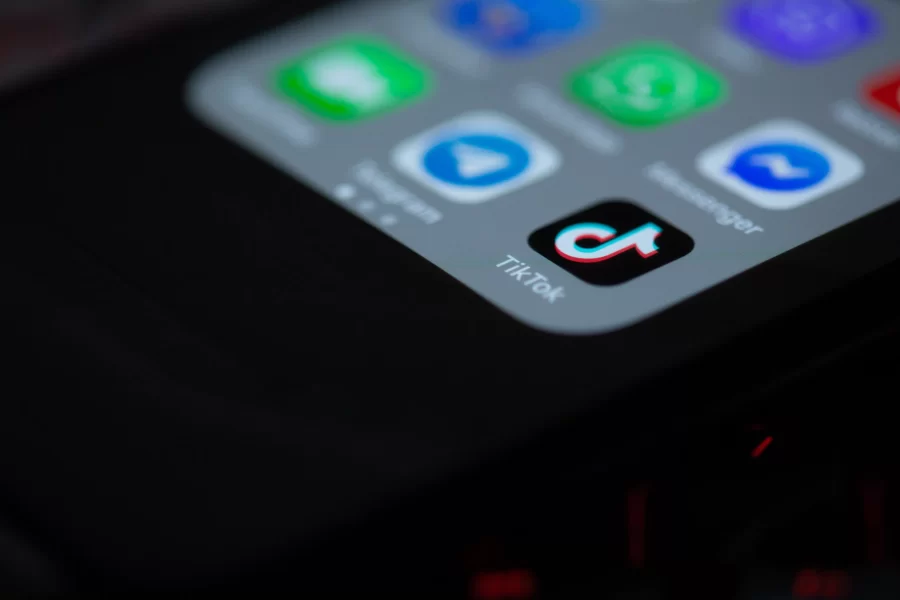[Opinion] Is Tik Tok Ruining Music?
Tik Tok is a social media platform responsible for setting many trends in our generation. The app’s featured audios have helped many artists grow, but have also decreased many musicians’ artistic value.
What is Tik Tok? The sensational social media platform quickly grew within the past few years, quickly becoming a trend among billions of people around the world. Creators film short videos, often leading to the growth of many songs, or audios, online. These songs feature a short 10-15 second clip, usually around the chorus of the song, and attract more people to listen to them.
So how is this a problem? With former music trends seen on apps such as YouTube a few years ago, the ‘slowed and reverb’ edit put onto songs quickly swept across the platform and made many songs more popular. Now, audios are preferred to be sped-up, prompting many artists to create new versions of their songs that are sped-up as well. This is because the revenue generated from listening to their music is not earned as it is an edited audio from a fan. In order to claim their own music, they have to create a sped-up version of the song on platforms such as Tik Tok or even Spotify.
Mia Wilson ‘23 adds, “[Tik Tok] cuts out fifteen second clips and it makes those really popular and then people don’t get to appreciate the whole song. Tik Tok songs are also usually sped up or slowed down so it’s not what the artist intended for everyone to listen to.” The trending audio edits of Tik Tok downgrade the original piece that the musician created. While it’s fun to listen to the edits, it doesn’t allow the artist to claim the song as theirs and in a way, degrades the integrity by which the piece was composed.
Tik Tok audios are also usually about ten to fifteen seconds in length. Because of this, only a certain portion of the song is being featured. This has led to frustration by many in the music industry, notably Steve Lacy, who at his recent concerts, have been singing less and less, noticing that his audience have not memorized the lyrics beyond the popular version in the song. As compared to Lacy’s former concerts before the COVID-19 pandemic, his audience have been interacting less and less. This may be because of the fact that Lacy’s growth is based on social trends, and that his audience is most likely composed of people swept onto his musical bandwagon.
This is a frustrating issue to debate, as songs that are objectively not musically unique are gaining extreme popularity within moments. For example, Gayle’s “abcdefu” was nominated for a Grammy despite having poor lyricism and an overall bland concept that has been overly popularized by Tik Tok (as seen in songs such as 10 “Things I Hate About You” by Leah Kate.)
On the other hand, many argue that Tik Tok has improved the music industry because of the exposure that it brings to many artists. In fact, millions of songs are played on Spotify by thousands of artists, helping them promote their music and sharing new concepts and ideas with the world.
Arabella Cassidy ‘23, describes, “It brings recognition to smaller artists because their songs get really popular.” This can be seen with many new musical artists who gained popularity through the app. Artists such as beabadoobee or Olivia Rodrigo have grown exponentially because of their trending audios that circulate the For You page.
Social media as a whole is a platform designed for communication. To share unique ideas, concepts, music, and art. Tik Tok itself promotes these audios, allowing for the growth of new artists with a great amount of potential and talent. However, many cannot deny that Tik Tok’s trends have also strained the music industry because of its constant change. More and more artists have to adapt to their audience who are easily swayed by trends.
Is Tik Tok really supporting new artists? Or is it the cause of struggle in the music industry as current artists adapt to the changing trends of society?

Native to San Diego, Hong-An Phan is a Co- Editor in Chief for Dons Press. After three consecutive years as part of the staff, Hong-An is looking forward...





















































